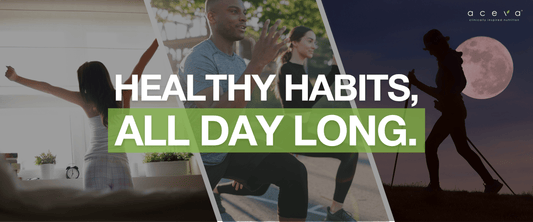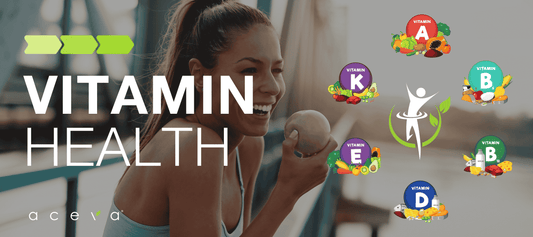Are the products you’re using making you sick? The short answer: they definitely aren’t helping you. That’s because every day, we are exposed to a barrage of toxins in our homes and products! In fact, the more you dive into the subject, the more shocked you’ll be at how many everyday products contain chemicals and toxins that are harmful to our health.

Study after study finds that toxins found in plastics, personal care products, cleaners, and more can and do enter our bodies. And they are traceable in our blood and urine (1). Thankfully, our liver, kidneys, and colon are designed to help our bodies filter out some toxins naturally. But when we start to reach toxic overload levels, these natural detox systems simply can’t keep up. The result? Our bodies and health feel the effect.
Toxins in Everyday Products
So just how many toxins are we exposed to daily? This is a loaded question and really depends on the products (and brands) you use. But the Toxic Substances Control Act (TSCA) of 1976 is really what started to shine light on the topic. This drove the EPA to inventory chemicals used in products in the United States. Today, there are a total of 83,000 chemicals on the list and that doesn’t include those used in foods and food additives, tobacco, drugs, cosmetics, firearms or ammunition, or pesticides. It’s also estimated that “chemicals are used in 96% of manufactured materials and products (2).”
Common Toxins and Their Effects on Your Body

Here’s a quick overview of some of the most common toxins. READ ARTICLE >>
As we continue to see a rise in childhood diseases, inflammatory conditions, certain cancers, hormonal imbalances, infertility and miscarriages, and mental disorders, we have to ask ourselves: could our exposure to these chemicals be playing a significant role in our health?
6 Ways to Avoid Everyday Toxins
Let’s look at how and what we can avoid (we’ll get to the unavoidable soon).
#1: In your water

Using a water filtration system is an easy way to reduce your exposure. There are many filtration systems out there and even more bottled water companies claiming their water is the purest. Thankfully, you don't have to break the bank to clean up the toxins in your water. A simple filtration system can do the job. The type of filtration system you use can vary, ranging from whole-house options to filters that simply fit into a pitcher in your refrigerator. If you're looking for a recommendation, Clearly Filtered is a BPA-free filter that can filter out 99% of human hormones, BPA, pesticides, PFAS/PFOAS, metals, and other contaminants (37). There are other terrific options out there. Just do a little research before you buy to see what contaminants the filter actually removes.
#2: In your foods

Buying whole foods (foods that don’t come in boxes or packages) is the safest approach. The more unprocessed or minimally processed foods you can buy, the better. This will help you avoid food additives, flavorings, dyes, and preservatives that could be harmful.
#3: In your meat (ractopamine)

Rather than buying mystery meat (mysterious because this chemical isn’t labeled), choose organic, grass-fed meats. If it’s certified by the American Grassfed Association, ractopamine is prohibited. You can also talk to local, trusted farmers about purchasing meat from them if they don’t use this additive (14).
#4: In your produce

Choose organic vegetables and fruits to avoid pesticides and herbicides (including glyphosate and GMO crops like Bt corn) that are commonly found in produce. Certified organic and certified non-GMO products prohibit modified organisms. Choosing these options over other produce can greatly reduce your exposure to these chemicals. It’s also important to remember to wash your produce well. We recommend using natural fruit and vegetable cleaners (vinegar is a great homemade version) to help reduce your exposure, but be warned that you can’t wash away all of the chemical particles.
#5: In your household cleaners
 Consider switching to more natural options such as vinegar, baking soda, and lemon. Look into chemical-free cleaning from companies like Norwex, Mrs. Meyers, Honest Company, ECOS, and more for the best organic cleaners.
Consider switching to more natural options such as vinegar, baking soda, and lemon. Look into chemical-free cleaning from companies like Norwex, Mrs. Meyers, Honest Company, ECOS, and more for the best organic cleaners.
#6: In your water bottles and storage containers
 Swap out your plastic storage products for glass and metal. Reducing exposure is a huge step. Travel mugs for hot beverages and stainless steel, silicone, or glass water bottles are available as alternatives to plastics. You can find my favorite bottle from Soma here.
Swap out your plastic storage products for glass and metal. Reducing exposure is a huge step. Travel mugs for hot beverages and stainless steel, silicone, or glass water bottles are available as alternatives to plastics. You can find my favorite bottle from Soma here.
How to Detox the Unavoidable
Even if you’re a pro at eating organic foods and diligently avoid chemical cleaners, inorganic produce, and processed foods, we hate to break it to you, but there will still be chemicals bombarding you. It’s unfortunate, but realistically you’ll never be able to remove all of the particles from foods. Many of the things you ingest most likely have come into contact with various chemicals or toxins at some point in their journey to you. Then, there is still the factor of hygiene products, fragrances, water, and air pollution.
Particles of pesticides and agrochemicals are found on numerous food items, fresh produce, processed and packaged items, cooked meals, and beverages. Washing and peeling can’t remove all of the particles. Generally, the levels aren’t significant enough to exceed those legislatively deemed safe, but those safety levels may not account for the mixture of different chemicals, which may have additive effects (17).
To combat toxins you simply can’t avoid, doing a detox cleanse once or twice a year will help your body clean up systems and reset.
The Ultimate Body Cleanse is a Complete 5-in-1 Detox
Aceva’s Ultimate Body Cleanse (UBC) is a complete 5-in-1 detox program that provides you with everything you could need for a holistically-minded, natural, and gentle cleanse. We also give you daily tips and instructions on how to get the best results from your cleanse!
Here’s how the Ultimate Body Cleanse works.
The Ultimate Body Cleanse program helps you eliminate trigger foods and junk from your diet and encourages you to flip your focus to delicious, protein-packed whole foods such as lean meats, nuts, fruits, and vegetables.
It also comes with a clean protein powder made of pea/pumpkin seed proteins. This is a must-have as you eliminate and add back foods over the 10-day detox because it helps prevent muscle loss, reduce craving, and those ravenous feelings of hunger that many detox programs make you go through!
Additional benefits that come from Aceva’s Ultimate Body Cleanse is that it includes:
- amino acids needed for tissue repair (important for the digestive tract)
- enzymes to improve digestion
- probiotics to support the vital balance of the gut microbiome (and your immune system as a whole!)
- herbal parasite cleanse to stop organisms from robbing your body of essential nutrients
Bottom Line on Detoxification

If you’re feeling sluggish, tired, run-down, or feel like your immune system just can’t keep up, a full body cleanse like the Ultimate Body Cleanse may be precisely what your body needs.
In an age where the chemicals are intrusive and omnipresent, the best thing you can do is to keep looking at what is in the products you use and how it can impact your health.
If you have any questions about our Ultimate Body Cleanse, let us know! Aceva has certified health coaches and nutritionists available to walk you through all you need to get your body feeling its best and living your potential.
Resources
- https://www.ucsf.edu/news/2017/06/407416/toxic-exposure-chemicals-are-our-water-food-air-and-furniture
- Roundtable on Environmental Health Sciences, Research, and Medicine; Board on Population Health and Public Health Practice; Institute of Medicine. Identifying and Reducing Environmental Health Risks of Chemicals in Our Society: Workshop Summary. Washington (DC): National Academies Press (US); 2014 Oct 2. 2, The Challenge: Chemicals in Today's Society. https://www.ncbi.nlm.nih.gov/books/NBK268889/
- https://www.epa.gov/pmcourse/what-particle-pollution
- https://www.epa.gov/lead-air-pollution/basic-information-about-lead-air-pollution
- https://www.webmd.com/a-to-z-guides/ss/slideshow-health-effects-air-pollution
- https://www.sciencedirect.com/topics/earth-and-planetary-sciences/water-pollutant
- https://www.health.harvard.edu/newsletter_article/drugs-in-the-water
- https://www.who.int/news-room/fact-sheets/detail/food-additives
- https://www.carnivoresq.com/fda-usda-basics/
- https://www.ecowatch.com/6-common-food-additives-used-in-the-u-s-that-are-banned-in-other-count-1882019112.html
- https://healthfully.com/549792-long-term-health-impact-of-bromated-flour.html
- https://www.endocrine.org/-/media/endosociety/files/advocacy-and-outreach/important-documents/introduction-to-endocrine-disrupting-chemicals.pdf
- https://www.mayoclinic.org/healthy-lifestyle/nutrition-and-healthy-eating/expert-answers/bvo/faq-20058236
- https://www.organicconsumers.org/blog/controversial-drug-ractopamine-back-news-and-still-your-food
- Joint FAO/WHO Expert Committee on Food Additives. (2005). Toxicological evaluation of certain veterinary drug residues in food. Geneva: World Health Organization, IPCS--International Programme on Chemical Safety.
- https://www.epa.gov/sites/production/files/2015-09/documents/ag_runoff_fact_sheet.pdf
- Nicolopoulou-Stamati, P., Maipas, S., Kotampasi, C., Stamatis, P., & Hens, L. (2016). Chemical Pesticides and Human Health: The Urgent Need for a New Concept in Agriculture. Frontiers in public health, 4, 148. https://doi.org/10.3389/fpubh.2016.00148
- https://www.sciencedirect.com/science/article/pii/S1383574218300887
- https://usrtk.org/pesticides/glyphosate-health-concerns/
- https://articles.mercola.com/sites/articles/archive/2011/05/31/study-found-toxin-from-gm-crops-is-showing-up-in-human-blood.aspx
- Aris, A., & Leblanc, S. (2011). Maternal and fetal exposure to pesticides associated to genetically modified foods in Eastern Townships of Quebec, Canada. Reproductive toxicology (Elmsford, N.Y.), 31(4), 528–533. https://doi.org/10.1016/j.reprotox.2011.02.004
- https://pubmed.ncbi.nlm.nih.gov/19007233/
- https://articles.mercola.com/sites/articles/archive/2010/04/03/jeffrey-smith-interview.aspx
- Séralini, G. E., Cellier, D., & de Vendomois, J. S. (2007). New analysis of a rat feeding study with a genetically modified maize reveals signs of hepatorenal toxicity. Archives of environmental contamination and toxicology, 52(4), 596–602. https://doi.org/10.1007/s00244-006-0149-5
- https://www.globalresearch.ca/genetically-modified-foods-unsafe-evidence-that-links-gm-foods-to-allergic-responses-mounts/7277
- Street, M. E., Angelini, S., Bernasconi, S., Burgio, E., Cassio, A., Catellani, C., Cirillo, F., Deodati, A., Fabbrizi, E., Fanos, V., Gargano, G., Grossi, E., Iughetti, L., Lazzeroni, P., Mantovani, A., Migliore, L., Palanza, P., Panzica, G., Papini, A. M., Parmigiani, S., … Amarri, S. (2018). Current Knowledge on Endocrine Disrupting Chemicals (EDCs) from Animal Biology to Humans, from Pregnancy to Adulthood: Highlights from a National Italian Meeting. International journal of molecular sciences, 19(6), 1647. https://doi.org/10.3390/ijms19061647
- https://www.nature.com/news/hormone-disruptors-rise-from-the-dead-1.13831
- https://experiencelife.com/article/8-hidden-toxins-whats-lurking-in-your-cleaning-products/
- https://www.who.int/ipcs/publications/cicad/cicad_10_revised.pdf
- https://www.sciencedaily.com/releases/2018/02/180216084912.htm
- Zota, A.R., Aschengrau, A., Rudel, R.A. et al. Self-reported chemicals exposure, beliefs about disease causation, and risk of breast cancer in the Cape Cod Breast Cancer and Environment Study: a case-control study. Environ Health 9, 40 (2010). https://doi.org/10.1186/1476-069X-9-40
- https://www.webmd.com/breast-cancer/breast-cancer-types-er-positive-her2-positive
- https://plasticpollutioncoalition.zendesk.com/hc/en-us/articles/222813127-Why-is-plastic-harmful-
- https://www.health.harvard.edu/staying-healthy/is-plastic-a-threat-to-your-health
- https://biodesign.asu.edu/news/perils-plastics-risks-human-health-and-environment
- https://www.npr.org/2011/03/02/134196209/study-most-plastics-leach-hormone-like-chemicals
- https://www.clearlyfiltered.com/pages/pfas
- Elson Haas, 2004. The Detox Diet, 3rd Edition.
- https://www.youtube.com/watch?v=qOTIB8ag_gg
- https://aceva.com/products/ultimate-body-cleanse





